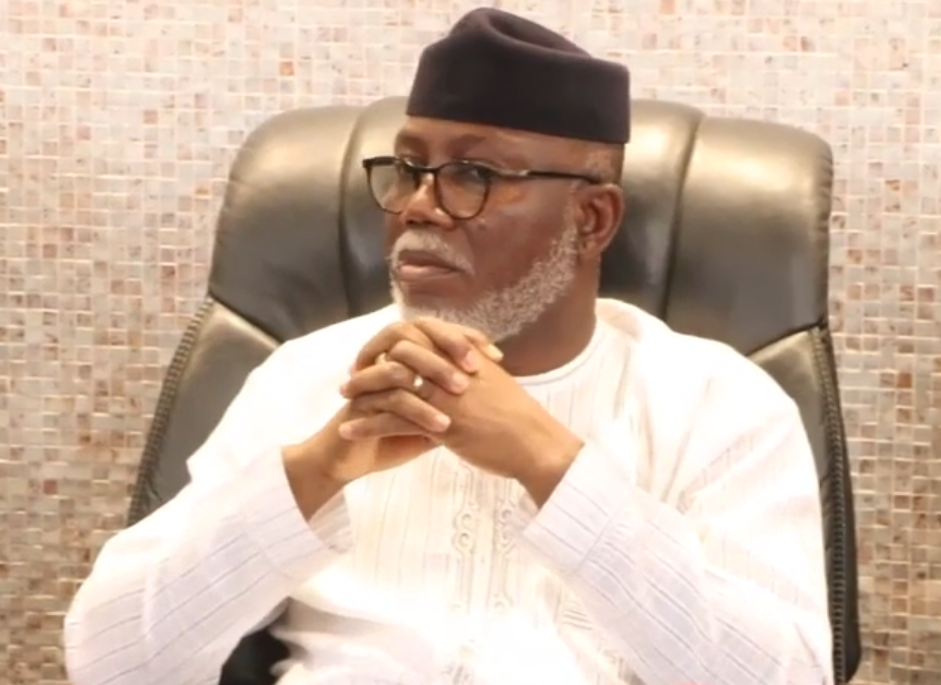The Ondo State chapter of the Peoples Democratic Party (PDP) has strongly criticized Governor Lucky Aiyedatiwa regarding his recent announcement to increase the minimum wage for state civil servants to N73,000, a step he revealed during his campaign kickoff for the upcoming November 16 governorship election. The PDP claims that this adjustment isn’t an act of genuine concern but rather a disingenuous tactic aimed at winning votes from the labor force. According to a statement from Ayo Fadaka, the Special Adviser on Media and Publicity for the PDP Campaign Organisation, this wage increment is perceived as a last-minute maneuver to gain favor with workers, who have long been facing struggles under Aiyedatiwa’s administration.
In its critique, the PDP emphasized that the timing of Aiyedatiwa’s announcement suggested insincerity, arguing that a true commitment to worker welfare would have led to previous increases in salaries. The statement described the increase from the federally mandated N70,000 to N73,000 as negligible and labeled it as a “Greek gift.” This portrayal reflects the party’s assertion that Aiyedatiwa is desperate to portray himself as supportive of workers while failing to address deeper issues affecting the state, such as poverty and unemployment. The PDP believes that this increment does nothing to resolve the underlying challenges in Ondo State, painting the move instead as a superficial attempt to mask administrative failures.
Criticism from the opposition party underscored a broader sentiment of dissatisfaction with Aiyedatiwa’s governance, which they characterized as marked by neglect and a lack of empathy towards the populace. The PDP accused the governor of deflecting attention from his administration’s shortcomings by offering meager wage increases that offer little in terms of actual relief for the hardship faced by many residents. They contended that Aiyedatiwa’s focus on the wage increment reflects a misguided priority, distracting from his apparent failure to enact substantial social reforms or economic developments necessary for the state.
Responding to the allegations, Allen Sowore, the Senior Special Assistant to the Governor on Strategic Communications, defended Aiyedatiwa’s actions. He pointed out that the minimum wage is a legal obligation that all governors must fulfill under national law, implying that the increase reflects compliance rather than goodwill. Sowore argued that Aiyedatiwa’s addition of N3,000 to the minimum wage was a commendable initiative, even if small. He emphasized that the government had established a tripartite committee tasked with examining salary adjustments, suggesting that the processes underpinning this announcement were already in motion rather than being hastily conceived.
Sowore further contended that the timing should not be critiqued as the PDP suggests, indicating that the administration has been actively working on wage-related issues prior to the governor’s public announcement. He accused the PDP of resorting to distortions and propaganda out of a shortage of credible policy ideas or achievements. By highlighting the prompt payment of salaries and attention to pensions under Aiyedatiwa’s tenure, Sowore sought to validate the current administration’s dedication to the welfare of workers, countering the opposition’s narrative that his approach is merely tactical.
Ultimately, the disagreement highlights the sharp divide in political sentiment surrounding governance in Ondo State, particularly as the governorship election approaches. While the PDP accuses Aiyedatiwa of opportunism and neglect, government officials counter these claims by asserting their commitment to worker welfare and necessary legal frameworks. As both parties prepare for the upcoming election, the debate over worker welfare will likely continue to be a focal point, influencing public opinion and voter behavior in the crucial final weeks of campaigning.














